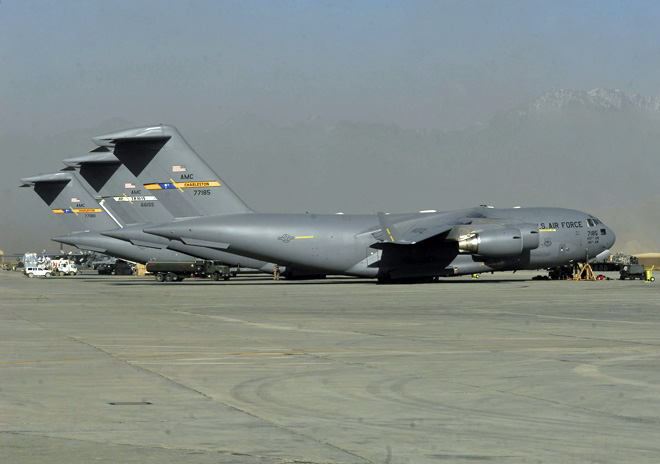I’ve had a bunch of readers writing in this afternoon questioning – with more or less levels of engagement or outrage – my contention that the President does not require congressional authority to launch an attack on Syria. I’m not sure how regular a reader TPM Reader PM is since he refers to me as “Mr. Marshall” but here’s his take on the question.
Mr. Marshall writes:
I think there is no question that the President does not need Congress’s approval to take the action he seems inclined to take. And I’m surprised how many people now seem to think or pretend otherwise.
Mr. Marshall does not provide any basis for his assertion that the President clearly does not need Congressional authorization to launch attacks on another country. In fact, he is so very certain of this that he characterizes those who disagree with him as perhaps only pretending to disagree.
The War Powers Resolution is fairly simple (despite its repeated mis-characterization in the press). The relevant text regarding the use of the military in hostilities is in paragraph 2(c):
The constitutional powers of the President as Commander-in-Chief to introduce United States Armed Forces into hostilities, or into situations where imminent involvement in hostilities is clearly indicated by the circumstances, are exercised only pursuant to (1) a declaration of war, (2) specific statutory authorization, or (3) a national emergency created by attack upon the United States, its territories or possessions, or its armed forces.
These are the only three conditions under which the President can legally enter into hostilities. The only condition that does not involve Congressional authorization is (3). Hence, Mr. Marshall must think that we are attacking Syria because there is “a national emergency created by attack upon the United States, its territories or possessions, or its armed forces”. Is that correct?
It seems a real stretch to frame the current situation as a response to an attack on the US. Even if Mr. Marshall can make that leap, does he really believe that those that are unable to make that leap are just pretending?
It might be helpful to at least present Mr. Marshall’s argument as to why there is no question that the President can unilaterally launch an attack on another country. Perhaps he has forgotten that we no longer live under a monarchy.
This is a complicated question, to say the least. I can’t settle it in a single post. But let me try to explain my basic perspective, which is both constitutional and historical. First, PM refers to the War Powers Act. I would put this to one side because – I believe I’m correct on this – no sitting President of either party has ever accepted that the War Powers Act is actually binding on the President. Indeed, its very constitutionality is questionable.
On the constitutional front, you frequently hear that only the Congress has the power to declare wars. But the President’s role as commander-in-chief of the armed forces gives him effective power to use the armed forces in various ways without a declaration. I don’t believe this is simply a post-World War II innovation. It’s a tension baked into the document itself. Congress can restrain the President with its control of the purse strings and its ability to make laws. But the really big grant of power in the Commander-in-Chief role isn’t something you can simply write off any more than you can Congress’s power to declare war.
What further informs my take on this is history. Presidents have used the US armed forces to attack foreign countries that were not in any way imminently threatening the United States on numerous occasions. The examples in Latin America are almost too numerous to count. And the generally dark history of those interventions does not reduce their historical or constitutional relevance. But think as recently as the two or three wars we fought in the Balkans in the 1990s. Congress authorized none of them. And when the UN wouldn’t – because of Russia’s veto – President Clinton used NATO as his authorization.
Nor is this new. If you go back to the country’s earliest history, President Adams and Jefferson also used the armed forces without declarations of war.
Now, it’s very true that there’s been a big change in the post-World War II era – in part because of the mechanics of the Cold War and in part because of the vastly increased powers of the presidency. It’s not clear when we’ll ever have another formal declaration of war. Even when we have basically had votes that amounted to declarations of war – like with Iraq – we don’t have actual declarations of war.
I know as well as anyone else that maximal interpretations of the president’s war powers can have the effect of making the president’s powers virtually unlimited. We need only consult John Yoo to know this. Nor am I saying that the President can just start wars willy nilly and do whatever he wants.
But it’s simply false to say there was anything terribly novel about President Obama’s use of the military in Libya – in constitutional terms. Nor can you have these supposedly inviolable constitutional rules that have actually been transgressed by presidents of both parties basically forever. You can’t simply say so, ‘Yo, read the constitution. Only Congress can take the country to war.’ The constitution is at best ambiguous on this point. And history and precedent says otherwise.








